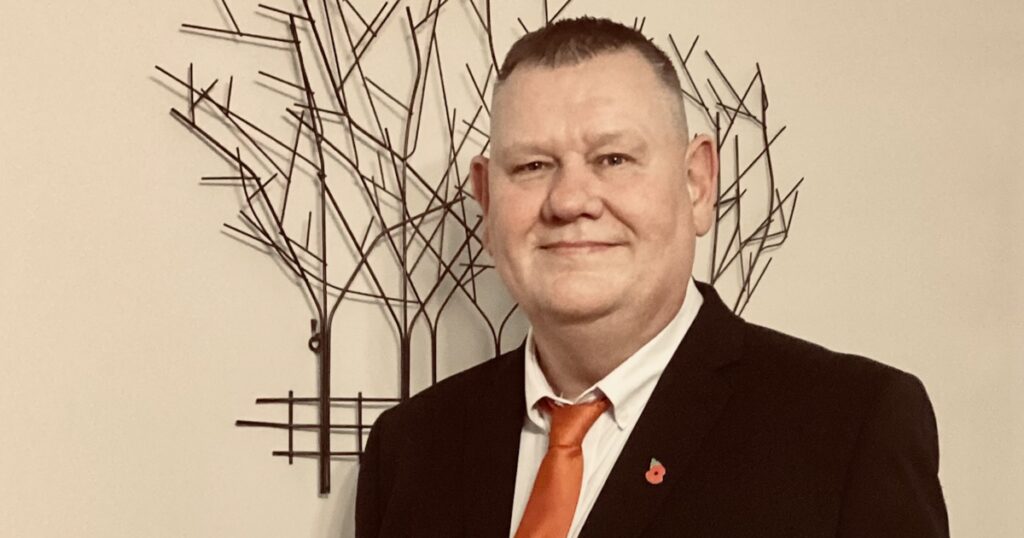
Shortly after he had his breast cancer diagnosis, David McCallion spotted an old friend crossing the road to avoid him. For a moment, 60-year-old David, a social care worker from Birmingham, was confused. There had never been a cross word between them, let alone a falling out.
“Then I realised he must have heard about my cancer diagnosis,” he recalls. “He just didn’t want to talk to me about it. I’d known this bloke for 25 years, and I was gutted. I wanted to call him all the names under the sun.
“He wasn’t the only mate who would turn his back on me, either. People got very awkward around me after my diagnosis – I was left feeling pretty lonely.” David is just one of many people living with cancer who find themselves ‘ghosted’ by friends – and sometimes even family – when they are most in need of support.
Robin Muir – a clinical psychologist working for Maggie’s, a national network of support centres for cancer patients, says: “Most people I’ve worked with at the centre, both men and women, have experienced some form of cancer ghosting from their social network. Sometimes it’s subtle – the calls and text messages dry up. Sometimes, it’s more obvious, like someone crossing the road. Either way, it makes life harder.
“If you’ve got cancer, you need to try to carry on with your normal life as much as possible. This means socialising, having fun and talking about subjects other than your illness.
“Friends can help you do this. But not if they’re too scared or awkward to engage with you.” While David was upset by his own experience, he has come to see it as a reflection of a wider problem – a shared awkwardness around the subject of cancer. “I used to get angry with people for avoiding the subject,” he says. “Now, I realise it’s about fear and ignorance. We all need to get a bit more comfortable with talking about cancer because almost everyone will be touched by it in some way.” One in every two people in the UK will be diagnosed with cancer. Half of those will survive 10 or more years, with survival rates in England and Wales doubling over the past 50 years. It’s common, but it certainly isn’t the death sentence it was once considered. Nevertheless, it remains an illness many people find difficult to talk about, particularly men.
David, who now lives in Oldham, was first diagnosed with breast cancer when he was 54. “I’d noticed my right nipple was inverted and there was a hard lump behind it,” he says. “The consultant told me straight away he thought it was cancer. A few weeks later, a biopsy confirmed it.” Although he was supported by Julie and their sons, Ryan and Liam, David felt guilty about burdening them with worry. “I knew they were hurting for me, and my first concern was for them and their feelings,” he says.
“I needed other people outside the family to spend a bit of time with. Not necessarily talking about my illness, just taking my mind off things for a bit. I was still the same David I was before the diagnosis – I wanted people to treat me like that.”
It was much more difficult than he expected. “Most of my mates were drinking buddies from the pub,” he says. “The first time I went in there after my diagnosis, a couple of blokes asked why I hadn’t been around lately and I told them I had breast cancer. “They said, ‘you can’t have breast cancer. That’s a woman’s illness!’ I explained we all had breast tissue and men could get it too. They didn’t want to know about it, let alone talk about it. People were quick to drink up, make excuses and leave.”
With numerous friends not answering phone calls or text messages, David began to feel increasingly lonely and isolated. His mental health started to suffer and he struggled to stave off feelings of bitterness towards his former mates. “I think there are some men who think they can almost catch cancer by talking to someone who has it,” he says. “We all like to think it is something that happens to others, so when someone like you gets it, it makes it seem that much more real and scary. Blokes just want to avoid feelings like that.” Robin Muir’s advice to those with friends living with cancer is to relax and not feel the need to ‘fix’ them.
“Tell them what is going on in your life,” he suggests. “Talk to them about what you usually talk about, whether that’s work, football or the weather.
It’s not your job to give them therapy or advice, just to take their mind off things. Or just listen and understand – there is no pressure for you to come up with inspirational words.”
Over time, David has come to understand why his old friends struggled. “I know from my time in social care that men are rubbish at confronting anything to do with health,” he says. “So many of us still have these old-fashioned ideas about being providers and are terrified of being unable to work. We bury our heads in the sand. I think that needs to change and we need to encourage lads from an early age to discuss their health.
“It’s the only way we’ll remove the stigma.” Meanwhile David has found solace and support in his local Maggie’s centre. “It’s opposite the hospital where I have treatment,” he says. “I met other men there going through all the same feelings I was, facing the same struggles, undergoing similar treatments. I felt safe talking to them without being judged. The more we talked, the more relaxed I became talking about my illness. I don’t know what I would have done without Maggie’s.”
Maggie’s offers free expert support to people with cancer in its 24 centres. Anyone can visit without a referral or appointment.
 Latest World Breaking News Online News Portal
Latest World Breaking News Online News Portal






